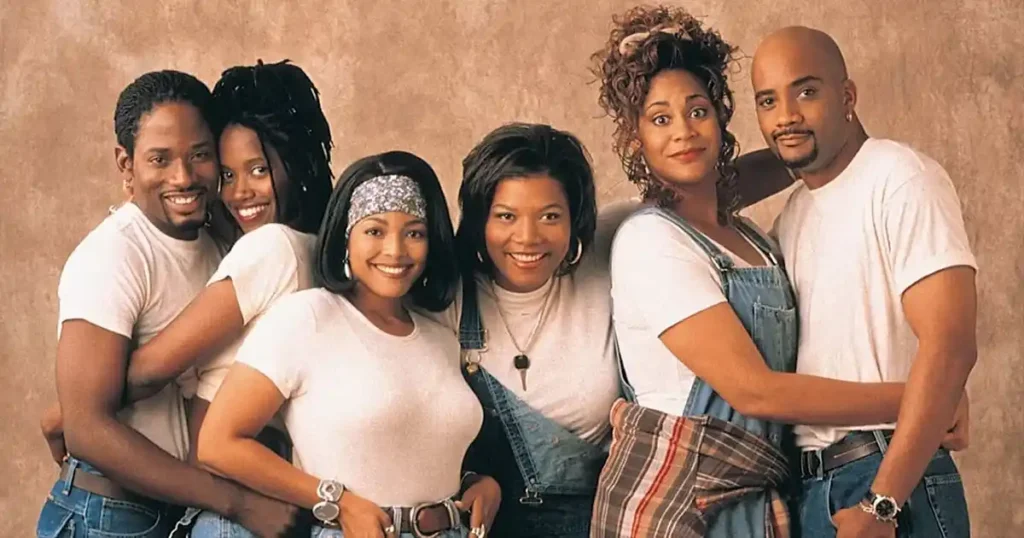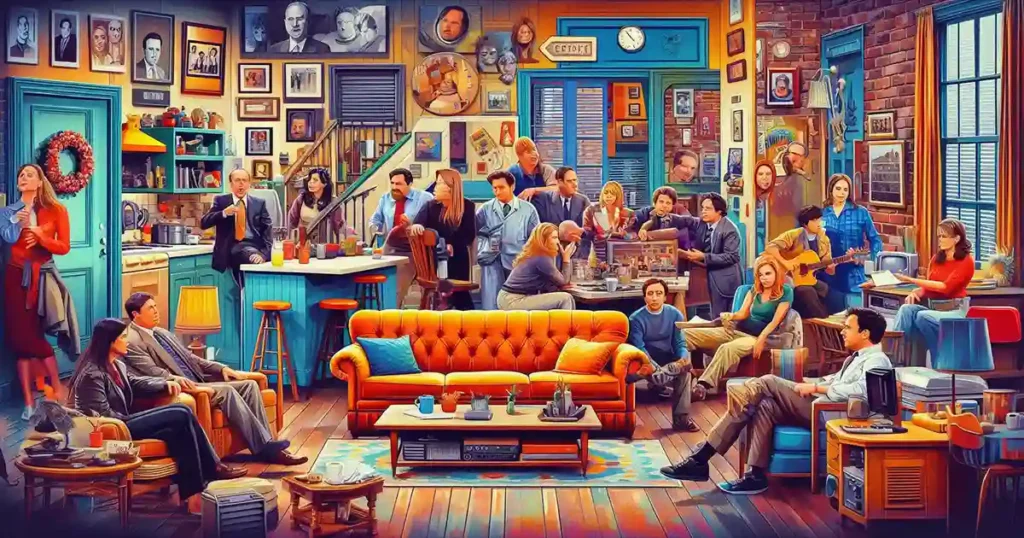The sitcom, a staple of television entertainment, has provided generations with laughter, comfort, and a glimpse into the relatable quirks of everyday life. From the iconic Friends to the modern-day brilliance of The Office, these shows have woven themselves into the fabric of popular culture, leaving an indelible mark on comedy and television as a whole. This article delves into the world of sitcoms, exploring some of the best ever created, analyzing their lasting impact, and examining the elements that contribute to their enduring appeal.

Early Pioneers and the Rise of Sitcom Gold
The sitcom’s roots can be traced back to early radio programs, with pioneers like Jack Benny and Burns and Allen setting the stage for the visual medium. The advent of television in the mid-20th century saw the rise of classic sitcoms like “I Love Lucy,” starring Lucille Ball and Desi Arnaz. This groundbreaking show, with its innovative use of multiple cameras and filmed in front of a live audience, set the template for many sitcoms to come.
The 1960s and 70s witnessed a golden age of sitcoms, with shows like “The Dick Van Dyke Show,” “Bewitched,” and “All in the Family” captivating audiences. “All in the Family,” with its unflinching portrayal of social issues, pushed the boundaries of television comedy, paving the way for more socially conscious sitcoms in the future.
The 80s and 90s: A Sitcom Renaissance
The 1980s and 90s saw a resurgence of sitcoms, with shows like “Cheers,” “The Cosby Show,” and “Seinfeld” achieving iconic status. “Cheers,” set in a Boston bar, became a beloved hangout for viewers, offering a warm and inviting atmosphere where characters could connect and share their stories. “The Cosby Show” broke ground by portraying a successful and loving African-American family, while “Seinfeld,” often referred to as “a show about nothing,” redefined sitcom humor with its observational comedy and witty dialogue.
The 1990s witnessed the rise of “Friends,” a show that captured the zeitgeist of a generation. With its relatable characters and heartwarming humor, “Friends” became a global phenomenon, airing in over 100 countries and achieving syndication success. The show’s popularity extended beyond television, with merchandise, spin-offs, and a dedicated fan base that continues to celebrate the show to this day.
The 21st Century: Innovation and Evolution
The 21st century has seen the evolution of the sitcom, with shows like “The Office,” “Modern Family,” and “Parks and Recreation” pushing creative boundaries. “The Office,” a mockumentary-style sitcom, garnered critical acclaim for its witty humor, relatable characters, and innovative use of the mockumentary format. “Modern Family,” with its diverse cast and unconventional family structure, reflected the changing landscape of American society, while “Parks and Recreation” brought a unique blend of optimism and humor to local government.
In recent years, streaming services have become a breeding ground for new and innovative sitcoms, with shows like “Fleabag,” “The Good Place,” and “Ted Lasso” captivating audiences. These shows, often featuring complex characters and exploring deeper themes, have demonstrated the enduring power of the sitcom format to entertain and engage viewers.
The Elements of a Great Sitcom
What makes a sitcom truly great? While there is no single formula, several key elements contribute to their success:
- Strong Characters: Memorable characters are the heart and soul of any sitcom. They should be relatable, multi-dimensional, and possess unique quirks that make them stand out.
- Witty Dialogue: Sharp writing and witty dialogue are essential for delivering punchlines and creating memorable moments.
- Relatable Situations: Sitcoms often draw humor from everyday situations, allowing viewers to connect with the characters and their experiences.
- Emotional Resonance: While primarily comedic, the best sitcoms also explore deeper themes and emotions, creating a sense of connection with the audience.
- Ensemble Cast Chemistry: The chemistry between the cast members is crucial for creating a believable and engaging dynamic.
The Lasting Legacy of Sitcoms
Sitcoms have left an undeniable mark on popular culture, influencing generations of comedians, writers, and viewers. They provide a valuable social commentary, reflecting societal changes and challenging norms. Moreover, they offer a much-needed escape from reality, providing laughter and entertainment in our daily lives.
A Look at Some of the Best Sitcoms of All Time:
- Friends (1994-2004): This iconic show follows the lives of six friends living in New York City, capturing the essence of friendship, love, and career struggles.
- The Office (US) (2005-2013): Based on the British series, this mockumentary-style sitcom offers a hilarious and often cringeworthy look at office life.
- Seinfeld (1989-1998): This groundbreaking show redefined sitcom humor with its observational comedy and witty dialogue, focusing on the mundane aspects of everyday life.
- Cheers (1982-1993): Set in a Boston bar, this show became a beloved hangout for viewers, offering a warm and inviting atmosphere where characters could connect and share their stories.
- The Cosby Show (1984-1992): This groundbreaking show portrayed a successful and loving African-American family, breaking ground in television representation.
- Modern Family (2009-2020): This Emmy-winning show explored the dynamics of a modern family, featuring a diverse cast and unconventional family structures.
- Parks and Recreation (2009-2015): This optimistic and heartwarming sitcom follows the misadventures of Leslie Knope, a passionate and idealistic government employee.
- I Love Lucy (1951-1957): This groundbreaking show, starring Lucille Ball and Desi Arnaz, set the template for many sitcoms to come, with its innovative use of multiple cameras and filmed in front of a live audience.
- The Dick Van Dyke Show (1961-1966): This classic sitcom, starring Dick Van Dyke, is known for its witty dialogue and memorable characters.
- All in the Family (1971-1979): This groundbreaking show pushed the boundaries of television comedy with its unflinching portrayal of social issues.
Conclusion
From the early pioneers to the modern-day innovators, sitcoms have continued to evolve and entertain audiences across generations. Their ability to reflect society, provide laughter, and offer a sense of connection makes them an enduring and valuable form of entertainment. As we look to the future, it is clear that the sitcom, with its capacity for innovation and social commentary, will continue to thrive and captivate audiences for years to come.






